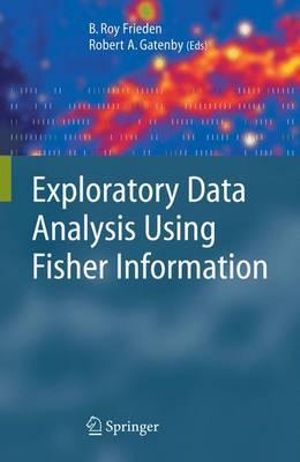
eTEXT
Exploratory Data Analysis Using Fisher Information
By: B. Roy Frieden (Editor), Robert A. Gatenby (Editor)
eText | 27 May 2010
At a Glance
eText
$159.01
or
Instant online reading in your Booktopia eTextbook Library *
Read online on
Desktop
Tablet
Mobile
Not downloadable to your eReader or an app
Why choose an eTextbook?
Instant Access *
Purchase and read your book immediately
Read Aloud
Listen and follow along as Bookshelf reads to you
Study Tools
Built-in study tools like highlights and more
* eTextbooks are not downloadable to your eReader or an app and can be accessed via web browsers only. You must be connected to the internet and have no technical issues with your device or browser that could prevent the eTextbook from operating.
ISBN: 9781846287770
ISBN-10: 1846287774
Published: 27th May 2010
Format: PDF
Language: English
Publisher: Springer Nature
You Can Find This eBook In
This product is categorised by
- Non-FictionComputing & I.T.Computer ScienceArtificial IntelligenceComputer Vision
- Non-FictionComputing & I.T.DatabasesData Capture & Analysis
- Non-FictionComputing & I.T.Digital Lifestyle & Online World: Consumer & User GuidesInternet Guides & Online Services
- Non-FictionComputing & I.T.Business ApplicationsMathematical & Statistical Software
- Non-FictionMathematicsCalculus & Mathematical Analysis
- Non-FictionReference, Information & Interdisciplinary SubjectsResearch & InformationInformation theoryCybernetics & Systems Theory
- Non-FictionComputing & I.T.Computer Science
- Non-FictionComputing & I.T.Databases
- Non-FictionComputing & I.T.Business Applications
























